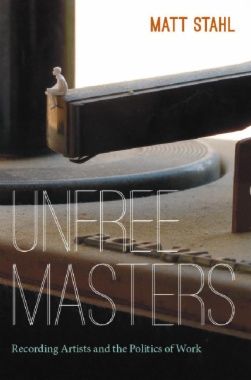The widespread perception of singers and musicians as free individuals doing enjoyable and fulfilling work obscures the realities of their occupation. In Unfree Masters Matt Stahl examines recording artists' labor in the music industry as a form of creative work. He begins by considering the television show American Idol and the 2004 rockumentary Dig!, tracing the ways that popular music making is narrativized in contemporary America and showing how such narratives highlight musicians' negotiations of the limits of freedom and autonomy in creative cultural-industrial work. Turning to struggles between recording artists and record companies over laws that govern their working and contractual relationships, he reveals further tensions and contradictions in this form of work. Stahl argues that media narratives of music making, as well as contract and copyright disputes between musicians and music industry executives, contribute to American socioeconomic discourse and expose a foundational tension between democratic principles of individual autonomy and responsibility and the power of employers to control labor and appropriate its products. Stahl asserts that the labor issues that he discloses in music can stimulate insights about the political-economic and imaginative challenges currently facing working people of all kinds.
- Contents
- Acknowledgments
- Introduction: Popular Music and (Creative) Labor
- Part I : Representation
- 1. American Idol and Narratives of Meritocracy
- 2. Rockumentary and the New Model Worker
- Part II : Regulation
- 3. Carving Out Recording Artists from California’s Seven-Year Rule
- 4. Freedom, Unfreedom, and the Rhetoric of the Recording Contract
- 5. Recording Artists, Work for Hire, Employment, and Appropriation
- Conclusion: “I’m Free!”
- Notes
- Bibliography
- Index

